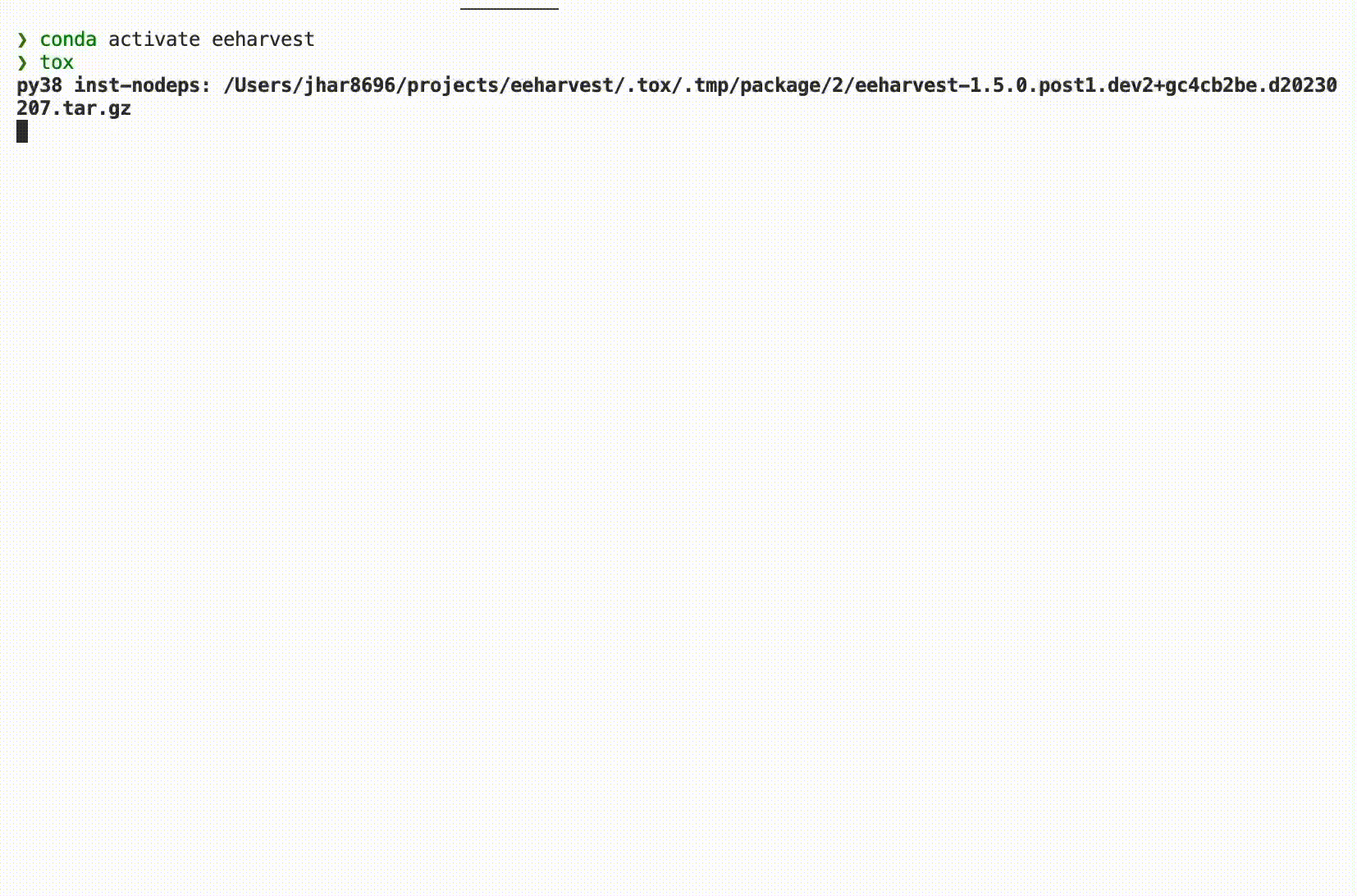- Tue 07 February 2023
- Python
- Januar Harianto
- #automation, #python, #unit-testing, #devops
Tox is a great too that standardises package building, testing, linting and CI-integration for Python projects. As not everyone builds Python packages, this article will focus on automatic unit tests for any python code.
Installing tox is as simple as:
pip install tox
Or if you use conda/mamba:
conda install -c conda-forge tox
Tox and eeharvest
The eeharvest package
uses Tox to automate a bunch of things:
- building the package
- running tests using
pytestin multiple environments - checking code coverage
- publishing to PyPI
If configured properly, the first four actions can be done in a single command:
tox
Publishing the package to PyPI is as simple as:
tox -e publish -- --repository pypi
Below is a preview of what happens when using tox for unit testing. If you look closely, tox is running unit tests on Python versions 3.8 to 3.11 (6 environments in total), and then publishing the coverage for each environment:

Configuration
Tox works by looking at a tox.ini file in the root of the project. That's it.
A single file.
A simple configuartion for two test environments, Python 3.8 and 3.11, can be generated with the following configuration settings in the file:
[tox]
requires =
tox>=4
env_list = py{38,311}
requires = tox-conda
[testenv]
description = Invoke pytest to run automated tests
setenv =
TOXINIDIR = {toxinidir}
extras =
testing
deps =
pytest>=7
pytest-sugar
conda_deps =
geedim
conda_channels=
conda-forge
conda_install_args=
--override-channels
commands =
pytest {posargs:tests}
Note that the above config requires use of tox-conda, which can be installed
via mamba/conda:
mamba install -c conda-forge tox-conda
Tox will automatically configure conda environments, because requires =
tox-conda is set. For each environment specified in env_list, it will install
dependencies specified in conda_deps and deps (pip dependencies), and then
run tests in your tests folder.
For more information on configuring tox, see the official documentation.